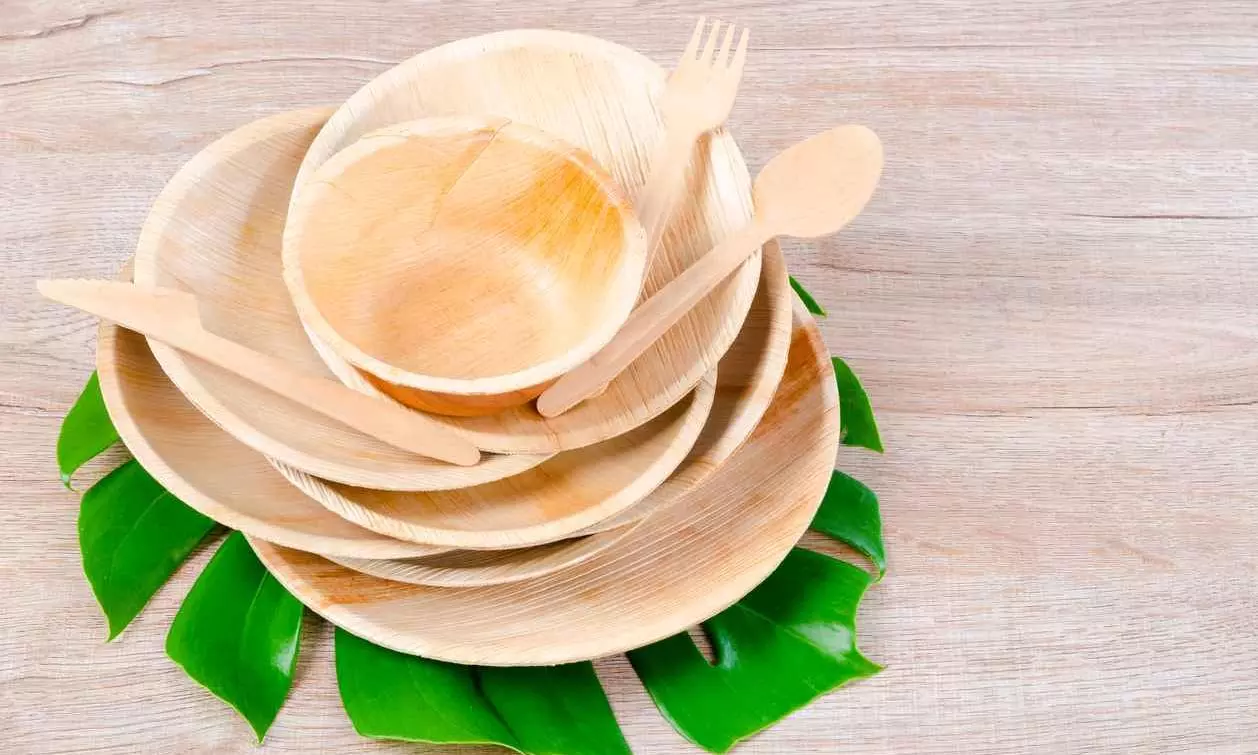
Why India, like US, should consider ban on areca leaf plates and cups
The foodware is disposable, environment friendly, but research links its use to oral cancer; govt must weigh economic interests of growers against health risk to users

The US prohibition of the sale of foodware made from the leaf sheaths of areca palms has angered and anguished its exporters in Karnataka’s Dakshina Kannada district, which is a major grower of areca nut. But the question that Indian health and food safety officials must ask is why such a ban shouldn’t be imposed here as well.
In a letter dated May 8, the US Food and Drug Administration (USFDA) told sellers that plates, bowls, cups, and cutlery made from the leaf sheaths of the areca palm “may not be lawfully offered for sale in the US”.
By way of guidance, it said the US authorities could detain without physical examination import consignments that contain foodware made from the leaves of the areca palm.
‘Long-term risk to health’
The department noted that based on its research and available toxicological data, it has determined that areca leaf sheath foodware may pose a long-term risk to health when used routinely.
The USFDA said the sale of dinnerware made from bamboo, sugarcane, and jowar or sorghum was not affected by its May communication.
Research showed that naturally-occurring toxins in dinnerware migrate to food at levels that may pose health risk to consumers. The toxic alkaloids include arecoline, which, the USFDA said, can damage the cells and cause cancer.
Also Read: Karnataka areca growers fume against tobacco lobby after cancer warning
Areca leaf sheath foodware is an eco-friendly alternative to single-use plastic and paperware, because it degrades naturally and is compostable. Indian exports of the products rose from $10 million in the financial year 2019 to nearly $13 million the following year.
Thereafter, owing to the disruption of trade caused by the Covid-19 pandemic, exports over the next two years fell to $6.5 million and $9 million. In FY 2025, India exported areca leaf sheath foodware worth $13.71 million.
The USFDA said the sale of dinnerware made from bamboo, sugarcane, and jowar or sorghum was not affected by its May communication.
Impact of US ban
The ban will have a disproportionate impact on the farming economy of some pockets in the country. The average area under areca palm over the past three years was 9,55,000 ha and the average production was 1.37 lakh tonnes.
Karnataka is a major producer. Last year, it accounted for 73 per cent of the country’s areca area and production. Within the state, the crop is grown mainly in Dakshina Kannada, Udupi, Shivamogga, and Tumkuru districts. Leaf sheaths gave farmers a secondary income.
Also Read: Telangana bans gutka, pan masala containing tobacco, nicotine for a year
As per reports in Mangaluru newspapers, exporters have cut their production in half and losses are imminent if the ban continues. The Dakshina Kannada MP, who is from the BJP, has reportedly written to the commerce minister asking for a diplomatic solution.
Areca nut and oral cancer
The areca industry was earlier troubled by a research report that indicted areca nut and smokeless tobacco for oral cancer. In an October 2024 press release, the International Agency for Research on Cancer (IARC) of the World Health Organisation (WHO) said its new study evaluating the global burden of oral cancer linked nine in 88 per cent of oral cancer cases to the use of areca nut and smokeless tobacco in South-Central Asia and 95 per cent of them in low and middle-income countries.
Areca nut growers in Dakshina Kannada were indignant when the study was published. They said areca nut, in itself, was not harmful; the other ingredients in supari or gutka made it so, they said.
Also Read: A new way forward for treatment of tonsil cancer
The website of the Arecanut Research and Development Foundation set up by Mangaluru-based cooperative Campco, which promotes the development of areca nut and cocoa in Karnataka, has an article on the “anti-cancer property of arecanut”.
There are claims on the website about the nut’s medicinal uses in aiding digestion, expelling worms, relieving constipation, strengthening the heart, regulating menstrual flow, and as a diuretic.
Government should act
But the IARC release is unambiguous: “A higher proportion of oral cancers were due to use of areca nut products, with or without tobacco, compared with other smokeless tobacco-only products.”
Though many families in pockets of Karnataka, Kerala, and Assam dependent on areca cultivation will likely be affected, the government must weigh their economic interest against the health risk that areca poses. It must help the farmers to shift out of areca nut and promote alternative uses for it, like, for instance, as a natural textile dye.
Also Read: What did USFDA say about Granules India that's causing its shares to fall?
While those consuming supari or gutka are aware of the harm that areca nut can cause, the users of areca dinnerware are not. The government cannot ignore the findings of USFDA and other research agencies and allow people to use areca leaf sheath foodware in the belief that they are doing the environment good.
It must make people aware of the hazard and undertake research to determine whether occasional use is safe or not.

